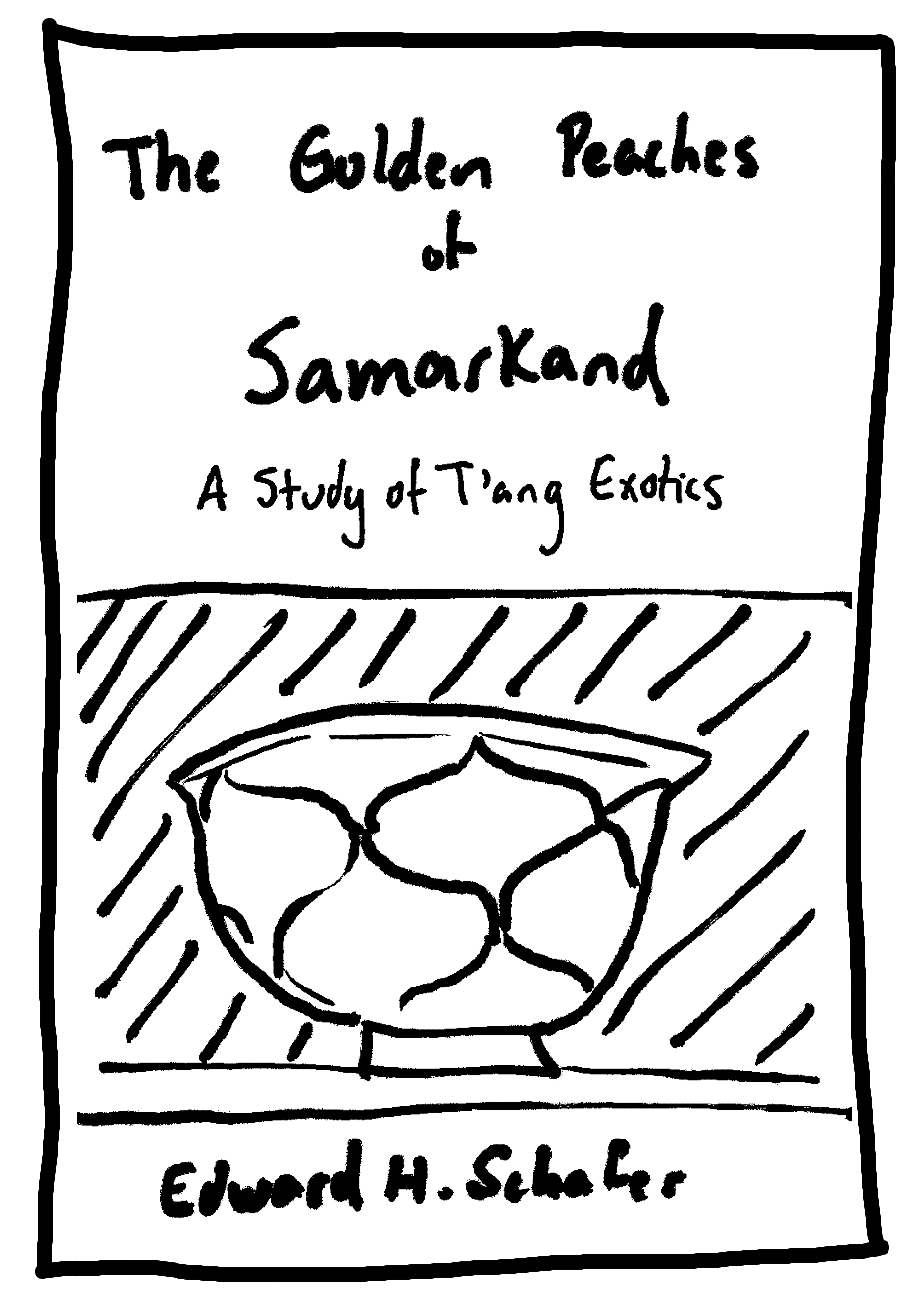The Golden Peaches of Samarkand
Ugh, I love when "Pagan Love Song" comes up on Pandora.
This 1963 book discusses goods imported into China during the Tang Dynasty (years 618 to 907). Each chapter is dedicated to a different exotic: ostriches, saffron, small people, etc. Maybe I bought this book because it was only $2 on Amazon. But like a book-loving ingénue that is captured in a castle and slowly falls in love, I've come around to this beast (there must be something there that wasn't there before).

[bt-dubscicles: Samarkand is a city in modern-day Uzbekistan]
Number one: Abundant references that make me feel smart-dumb
"This artless image reminds us of the abstract animals of medieval European allegory, emblematic of the Christian virtues, like the stag as symbol of the soul thirsting for baptism."
I think I'm supposed to know that the stag is a symbol of the soul thirsting for baptism. Do I not know this because I wasn't born in 1913? Or because I'm not a renowned sinologist? Or because I need to brush up on my Christian symbolism? In any case, Schafer expects me to know this, so I'm gonna nod and say, "Of course. The stag."
Throughout the whole book, Schafer freely refers to other texts and concepts with an air of we all know this, right? One of my faves so far is when he compares some ancient songs to songs we are familiar with: “Song of India,” “Where the Ganges Flows,” and “Pagan Love Song.”
Ugh, I love when "Pagan Love Song" comes up on Pandora.
Number two: Learning new words but only sexy ones
I've learned that contumacious (rhymes with salacious) means unwilling to obey the authorities ;) Thalassocracy is an empire that rules mainly over the sea—a maritime realm ;) Need to avert evil spirits? Sip on this apotropaic potion ;)
See? Even if I didn't punctuate my sentences with the almost-too-erotic winky face, you would see just how sensual this Chinese history book is, but I really wanted to drive the point home.
Number three: Magic and whimsy
Schafer is not here to pass judgement—he leaves that shit to Jesus. He recounts many details about exotic imports and doesn't much care to draw a line between what is true and what is not. Here's one example:
"But the magical power of feathers was once abundantly obtained by dressing in them completely; a cloak or a suit of feathers brought one closer to the bird-spirits, or to birds in their spiritual form, or to birds conceived of as ideal forms, than any mere feather ornament could do."
I really appreciate that the author doesn't man-invalidate the people of the Tang era by making light of their supernatural beliefs. The way he describes the supernatural beliefs connected with each import tells us so much about the era. IMO, it tells us way more about how people thought back then compared to how many leather boots they got from Mongolia. Also "peahens become pregnant at the sound of thunder."